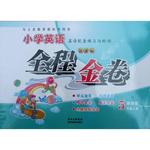题目内容
【题目】Mother Teresa was born on August 26th,1910 in Skopje, Macedonia. She always wrote her birthday as 27th of August because it was the day of her baptism(洗礼), which was always more important to her than her birthday. For her work with the poor around the world, she received the 1979 Nobel Peace Prize.
In 1928, she accepted a religious order and took the name Teresa. The order immediately sent her to India. A few years later, she began teaching in Calcutta. In 1948 the Catholic(天主教的) Church agreed her request and let her enter the convent(女修道院) and she began to work for the poor people. She became an Indian citizen in the following year. In 1950, she set up a religious organization in Calcutta. The organization provided food for the poor people and then she set up hospitals, schools, youth centers, and homes for the sick and the dying poor. It now has branches in 50 Indian cities and 30 other countries.
Besides the 1979 Nobel Peace Prize, Mother Teresa has received other awards for her work with the poor people. On September 5th,1997, Mother Teresa passed away, but she will continue to inspire people all over the world through her lasting present of love and faith.
【1】From the text we can infer that Mother Teresa ________.
A. had her name Teresa when she was very young
B. devoted herself to the poor all her life
C. was born in India and lived there for most of her time
D. received the Nobel Peace Prize in her early sixties
【2】Which of the following is the correct order of Teresa’s experiences?
a. She became an Indian citizen.
b. She began to work for the poor.
c. She began teaching in Calcutta.
d. She became a nun.
e. She set up a religious organization.
A. c-b-d-a-e B. c-d-b-a-e C. a-b-d-c-e D. a-c-b-d-e
【3】The author writes the text mainly to ________.
A. let us know Mother Teresa was a great woman
B. tell us Mother Teresa received the Nobel Peace Prize
C. give us some information about Mother Teresa
D. prove that a woman can also do great work for the poor
【答案】
【1】B
【2】B
【3】C
【解析】
试题分析:本文介绍了Mother Teresa的人生经历。
【1】B 推理判断题。根据第一段最后一句For her work with the poor around the world, she received the 1979 Nobel Peace Prize.她为全世界的穷人工作,她获得了1979年的诺贝尔和平奖。故选B。
【2】B 细节理解题。根据第二段中she began teaching in Calcutta. (她在Calcutta 开始教学);let her enter the convent(女修道院)成了一名修女;she began to work for the poor people. (她开始为穷人工作);She became an Indian citizen(她成了一名印度公民);In 1950, she set up a religious organization in Calcutta.(在1950年创立了宗教组织。)可知,B项正确。
【3】C 主旨大意题。纵观全文都在说关于Mother Teresa的事情,在向世人传达她的信息。故选C。

 全程金卷系列答案
全程金卷系列答案 快乐5加2金卷系列答案
快乐5加2金卷系列答案【题目】任务型阅读
请认真阅读下列短文,并根据所读内容在文章后表格中的空格里填入一个最恰当的单词。
注意:每个空格只填1个单词。请将答案写在答题卡上相应题号的横线上。
Deep reading, as opposed to superficial (shallow) reading we do on the Web, is an endangered practice, one we ought to take steps to preserve as we would a historic building or a significant work of art.
Recent research has illustrated that deep reading, characterized as a unique experience different kind from the mere understanding of words, is slow, immersive (沉浸的), rich in sensory detail and emotional and moral complexity. Although deep reading does not, strictly speaking, require a conventional book, the limits of the printed page are uniquely helpful to the deep reading experience. A book’s lack of hyperlinks (超链接), for example, frees the reader from making decisions—should I click on this link or not—allowing her to remain fully absorbed in the story.
That immersion is supported by the way the brain handles language rich in detail, indirect reference and figures of speech: by creating a mental representation that draws on the same brain regions that would be active if the scene were unfolding in real life. The emotional situations and moral dilemmas that are the material of literature are also vigorous (有活力的) exercise for the brain, driving us inside the heads of fictional characters and even, studies suggest, increasing our real-life capacity (能力) for recognition.
None of this is likely to happen when we’re browsing through a website. Although we call the activity by the same name, the deep reading of books and the information-driven reading we do on the Web are very different, both in the experience they produce and in the capacity they develop. A growing body of evidence suggests that online reading may be less satisfying, even for the “digital natives” to whom it is so familiar. Researchers reported that 39% of children and teens read daily using electronic devices, but only 28% read printed materials every day. Those who only read onscreen were three times less likely to say they enjoy reading very much and tell which book they like best. The study also found that young people who read daily only onscreen were nearly twice less likely to be above-average readers than those who read daily in print or both in print and onscreen.
All in all, the disappearance of deep reading would harm the intellectual and emotional development of generations growing up online, as well as the preservation of a critical part of our culture: the novels, poems and other kinds of literature that can be appreciated only by readers whose brains have been trained to understand them.
Passage outline | Supporting details |
The present situation about deep reading | ◆ As we are reading more on the Web, deep reading has a tendency to 【1】 . ◆ Like a historic building or a significant work of art, deep reading 【2】 our preservation. |
【3】 of deep reading | ◆ Deep reading【4】 complex emotional and moral experiences. ◆ Deep reading usually 【5】 from printed materials. ◆ Deep reading helps train a reader’s brain and make it more【6】 . ◆ Compared with online reading, deep reading can bring readers more 【7】 . ◆ Deep reading makes a bigger 【8】 in increasing readers’ reading ability. |
Conclusion | ◆ Without deep reading, generations in this digital world can’t develop well in emotion and【9】 . ◆ Without deep reading, people may be【10】 to appreciate literature. |